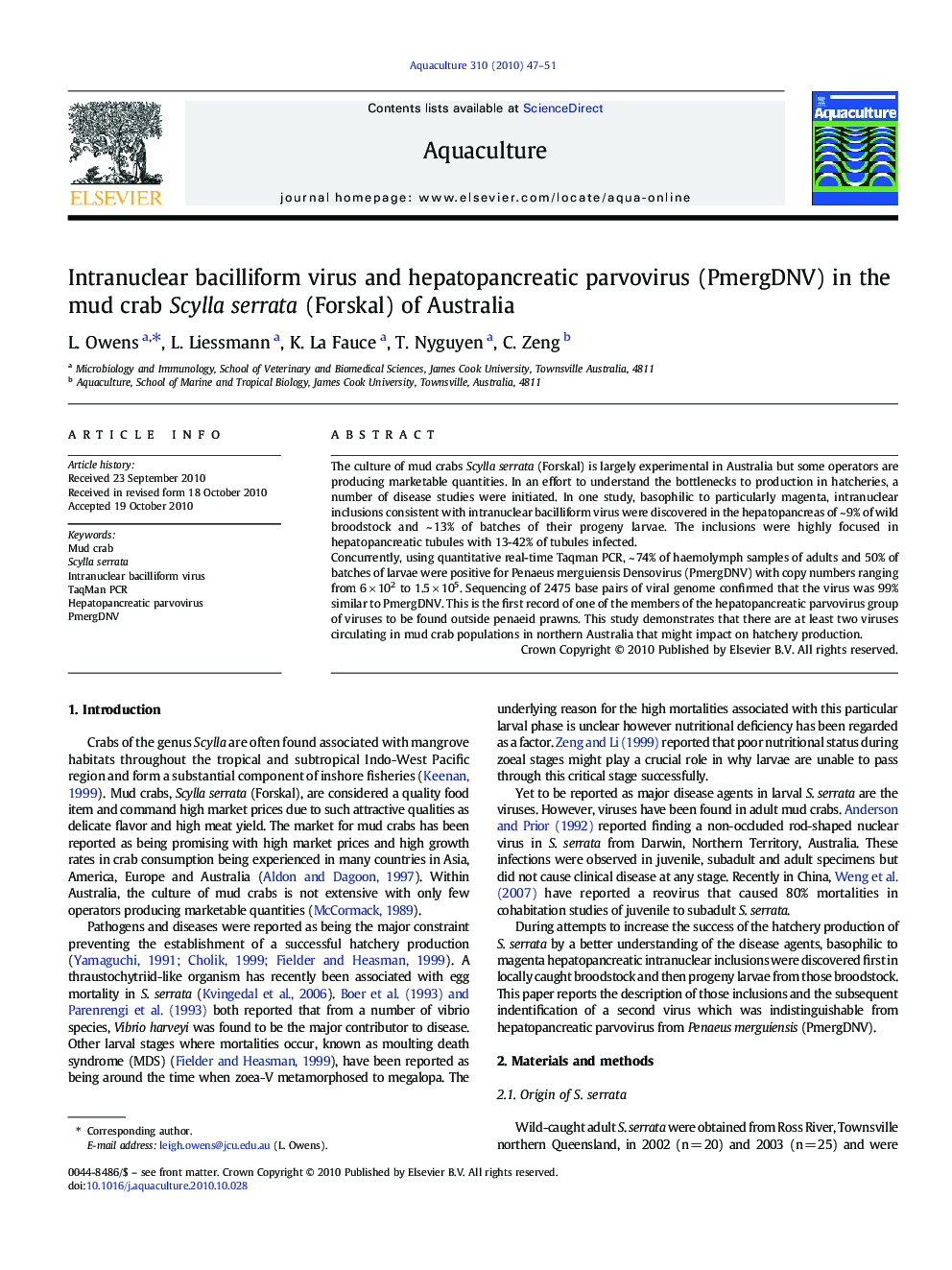| Article ID | Journal | Published Year | Pages | File Type |
|---|---|---|---|---|
| 2423414 | Aquaculture | 2010 | 5 Pages |
The culture of mud crabs Scylla serrata (Forskal) is largely experimental in Australia but some operators are producing marketable quantities. In an effort to understand the bottlenecks to production in hatcheries, a number of disease studies were initiated. In one study, basophilic to particularly magenta, intranuclear inclusions consistent with intranuclear bacilliform virus were discovered in the hepatopancreas of ~ 9% of wild broodstock and ~ 13% of batches of their progeny larvae. The inclusions were highly focused in hepatopancreatic tubules with 13-42% of tubules infected.Concurrently, using quantitative real-time Taqman PCR, ~ 74% of haemolymph samples of adults and 50% of batches of larvae were positive for Penaeus merguiensis Densovirus (PmergDNV) with copy numbers ranging from 6 × 102 to 1.5 × 105. Sequencing of 2475 base pairs of viral genome confirmed that the virus was 99% similar to PmergDNV. This is the first record of one of the members of the hepatopancreatic parvovirus group of viruses to be found outside penaeid prawns. This study demonstrates that there are at least two viruses circulating in mud crab populations in northern Australia that might impact on hatchery production.
